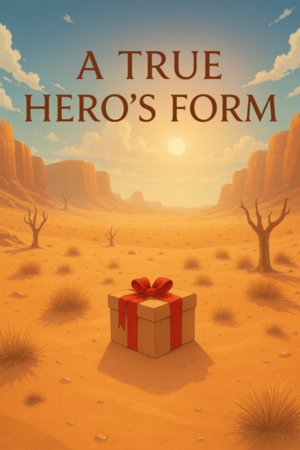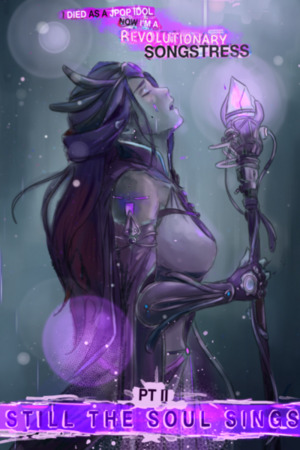Chapter 40:
Silence
A True Hero's form
One month ago.
The schoolyard was always loud, always full of laughter, footsteps, and conversations that blurred into a single indistinct hum. But for him, it was a battlefield. Every hallway, every corner of the school felt like a trap waiting to spring. His footsteps echoed on the worn tiles as he moved, head down, books clutched tightly to his chest as though they could form a shield against the world.
He wasn’t invisible. He had learned long ago that invisibility wasn’t an option. Being invisible made them hunt harder. Being seen made them mock louder. Either way, he was a target. His only hope was to be quick, to slip from one class to another like a shadow before the laughter started.
It always started the same way. Little things, small enough for the teachers to miss, big enough to chip away at him like water carving into stone. At first, he had told himself it didn’t matter. He told himself it would stop. But it hadn’t. It never did.
At home, there was silence. Not the comforting silence of peace, but the heavy silence of absence. Parents working late, or simply not noticing. Dinner at the table alone. His room was small, the peeling posters on the walls a faint echo of a time when he still had hobbies, when he still thought life could be different. The guitar in the corner, once played every night, now gathered dust.
He remembered the first time they had cornered him behind the gym. Three of them. Bigger, stronger, with grins that didn’t reach their eyes. They didn’t hit him. Not really. That would have left marks. They pushed him, laughed at his clothes, called him names. They poured soda into his bag and threw his books into the trash. When it was over, he’d gone into the bathroom and tried to clean the sticky liquid off his notebooks. He had told himself not to cry. Crying would make it worse.
His voice, once confident, now trembled whenever he had to answer in class. Teachers noticed but said little. “You have to stand up for yourself,” one said. “Kids can be cruel,” another offered. As though it were a phase. As though cruelty were a natural phenomenon, like the rain.
He stopped eating lunch in the cafeteria. The noise, the laughter, the chance of being noticed—it was too much. Instead, he sat on the far staircase near the old storage rooms, nibbling at sandwiches that always seemed to taste like cardboard. Sometimes he didn’t eat at all.
The days blurred. Morning alarms became heavier. The mirror showed someone he barely recognized. Dark circles under his eyes. Shoulders hunched. A face that no longer looked like a boy’s but something hollowed out.
The rooftop had become his sanctuary. He had found the old door unlocked one afternoon, chasing a moment of quiet. Up there, the noise of the school was distant, like a muted TV. He could see the entire city stretching out, the cars like ants, the buildings small. Up there, he felt big for once. Like he could breathe. He started going there almost every day, between classes, after school, just to sit and watch the world.
That day had been worse than most. They had taken his notebook, the one he used to draw in when no one was looking. They flipped through it, laughing at the sketches, at the clumsy poetry scrawled between pages. One had torn out a drawing and crumpled it, throwing it like a ball.
He’d tried to grab it back. They’d laughed. “What’s the matter? Gonna cry?” one jeered. He didn’t. He just picked up what he could and left, the sound of their laughter following him down the hall like a ghost.
He went to the rooftop. It was cloudy that afternoon, the sky heavy and gray, pressing down like a weight. He sat near the edge, his legs dangling over, feeling the wind tug at his sleeves. The city below moved on, indifferent, as though his pain were invisible.
He took out the crumpled page from his pocket. It was a drawing of the skyline, the same one he saw from this roof every day. His escape, his secret place. Now torn, stained with dirt from the hallway. His hands trembled as he smoothed it out, but the tear wouldn’t disappear.
He thought about everything at once. The laughter. The empty dinners. The teachers’ words. The guitar in the corner of his room, silent. The feeling of soda dripping from his bag. The notebook ripped apart. The way no one had noticed the light going out of his eyes.
And he thought about nothing at all. Just the wind, and the edge, and the city below.
A teacher’s voice drifted faintly from somewhere inside the building. Someone was shouting on the basketball court. Life went on.
He closed his eyes. He imagined a place where the laughter didn’t follow him, where his drawings weren’t torn, where his words didn’t get stuck in his throat. A place where he didn’t feel so small.
He stood up slowly. His legs felt weak, but steady. The wind pushed harder, almost like it was trying to hold him back. He looked over the edge. The cars were dots. The people were ants. The sound of the school faded until it was just him, the sky, and the edge.
He thought about leaving a note. But what would he write? “I’m sorry”? “It wasn’t your fault”? “It was all of your fault”? None of it felt right. He had nothing left to say.
He took a deep breath, the deepest he’d taken in months. The air was cold, sharp in his lungs. He opened his hands and let the crumpled drawing fall. It fluttered down, twisting in the wind, until it disappeared into the gray below.
He stepped forward.
For a moment, there was only silence.
That guy's name was Lian.




Please sign in to leave a comment.